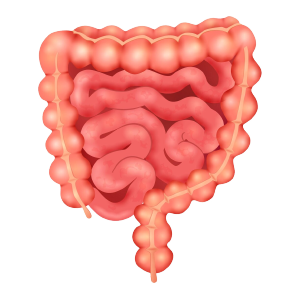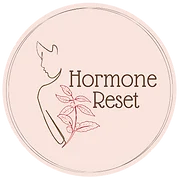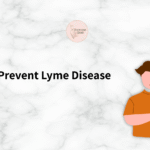Lupus
Home / Conditions we treat / Lupus
Identifying the causes of Hormonal imbalances
Excessive Exercise or Sedentary Lifestyle
Overtraining initially increases and later may suppress cortisol production, while lack thereof contributes to insulin resistance and poor circulation.
Chronic Stress
Elevated cortisol levels affect thyroid and reproductive hormones amongst many others, leading to fatigue, weight gain, and immune dysfunction.
Poor Diet
Processed foods, sugar, and unhealthy fats disrupt insulin sensitivity, which leads to various downstream effects like estrogen progesterone imbalance, increasing the risk of metabolic and various other disorders.
Environmental Toxins
Endocrine disruptors in plastics, beauty products, and pesticides mimic hormones and interfere with normal function, leading to hormonal chaos and dysfunction.

Do You Have a Hormone Imbalance? Symptoms of
Hormonal Imbalance
Fatigue and Low
Energy
Persistent tiredness, even after sufficient rest, may signal imbalances in cortisol , thyroid hormones, or insulin.
Weight Gain and Difficulty Losing Weight
Hormonal imbalances can cause stubborn fat, especially around the belly, hips, or thighs.
Mood Swings, Anxiety, and Depression
Hormonal imbalances like low progesterone, estrogen shifts, high cortisol, or low thyroid can trigger irritability, sadness, and anxiety.
Sleep Disturbances and
Insomnia
High nighttime cortisol, low daytime cortisol, melatonin imbalance, or low progesterone can disrupt sleep.
Irregular Menstrual Cycles
and PMS
Hormone imbalances like estrogen dominance, low progesterone, PCOS, or thyroid issues can cause irregular cycles and PMS symptoms.
Low Libido and Fertility Issues
Low estrogen, testosterone, or progesterone levels can reduce sex drive and cause infertility.
Brain Fog and Poor Concentration
Forgetfulness, lack of mental clarity, and difficulty focusing may stem from thyroid dysfunction, blood sugar instability, or inflammation triggered by hormonal imbalance.
Skin and Hair Changes
Thinning hair, dry skin, acne, or brittle nails may signal thyroid issues, high androgens, or estrogen imbalance often with irregular periods.
Digestive Problems and Bloating
Estrogen imbalance, especially dominance, can slow digestion and cause bloating. Gut issues may also worsen hormone imbalance.
Functional Medicine Approach to Hormone Imbalance?
Functional Medicine is a science-backed method that focuses on identifying and addressing the root causes of imbalances rather than just treating symptoms. Instead of relying on medication alone, this approach combines personalized nutrition, lifestyle changes, and advanced lab testing to restore optimal hormone function.

Step 1
Focuses on identifying and addressing the root causes

Step 2
Personalized Nutrition & Detoxification

Step 3
Restoring Gut Health & The Gut-Hormone Connection
Meet Our Specialists

Dr. Ruhi Agarwala

Siddarth Goel
Take Control of Your Hormones Today
If you’re struggling with fatigue, mood swings, unexplained weight gain, or other symptoms of hormonal imbalance, it’s time to take action. Your body is designed to heal—it just needs the right support.
Start your journey to hormone balance today with expert guidance from HormoneReset and experience the power of functional medicine.

Frequently Asked Questions
Can Hashimoto’s Thyroiditis be Cured?
“Conventional medical treatments cannot fully cure Hashimoto’s thyroiditis, but Functional Medicine can effectively reverse the condition by addressing its root causes. While standard treatment typically involves thyroid hormone replacement, Functional Medicine takes a comprehensive approach to addressing autoimmunity affecting the thyroid gland. Through targeted supplementation, personalized nutrition plans, and lifestyle modifications, it works to resolve the underlying triggers unique to each individual.”
What is Hashimoto’s thyroiditis?
Hashimoto’s thyroiditis is an autoimmune condition where the body’s immune system is reacting to triggers and end up attacking the thyroid, leading to hypothyroidism (underactive thyroid).
Does Hashimoto’s go away if the thyroid is removed?
Removing the thyroid does not cure Hashimoto’s, as the autoimmune response can still affect other parts of the body since the underlying autoimmune process has not been addressed. Only its victim, the thyroid gland has been removed. This makes one dependent on thyroid hormone supplementation for the rest of life.
How is Hashimoto’s thyroiditis diagnosed?
The most important indication for diagnosing hashimoto’s is the presence of thyroid antibodies – anti-thyroid peroxidase antibody and anti-thyroglobulin antibody. The presence of these antibodies confirms that the immune system is damaging the thyroid gland, even though clinical symptoms maybe yet be absent and T3 and T4 numbers within the ranges. Presence of these antibodies can also work as an early warning system.
What to eat for Hashimoto’s thyroiditis?
A balanced diet rich in fruits, vegetables, lean proteins, and healthy fats is beneficial. Avoid refined and processed foods and gluten, dairy and soy, which are known triggers for autoimmunity.
What is Hashimoto’s thyroiditis a form of?
Hashimoto’s thyroiditis is a type of autoimmune thyroid disease, where the body’s immune system attacks the thyroid gland.
Can a thyroid ultrasound detect Hashimoto’s?
A thyroid ultrasound can help detect changes in the thyroid, such as enlargement or nodules, which may suggest Hashimoto’s, but a blood test is needed for a diagnosis.
Can pregnancy cause Hashimoto’s thyroiditis?
Pregnancy can trigger Hashimoto’s or worsen existing thyroid issues due to hormonal changes. Regular thyroid checks during pregnancy are recommended.
Can you have Hashimoto’s disease without a thyroid?
No, if your thyroid is removed, you cannot have Hashimoto’s thyroiditis, but you may still get other autoimmune disorders since autoimmunity has not been addressed by thyroid removal.
Is autoimmune thyroiditis the same as Hashimoto?
Yes, autoimmune thyroiditis is another name for Hashimoto’s thyroiditis. It refers to an autoimmune condition that affects the thyroid gland.



